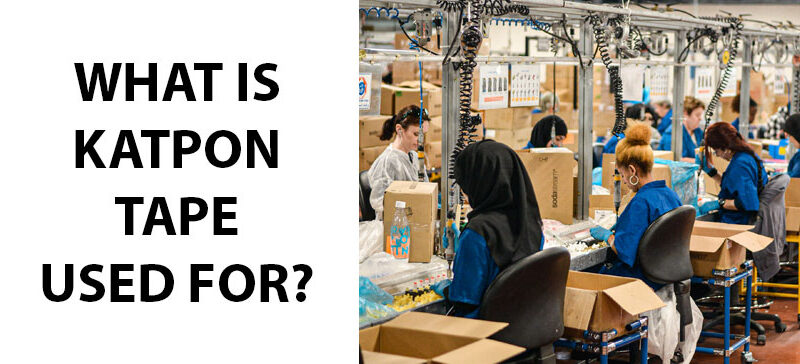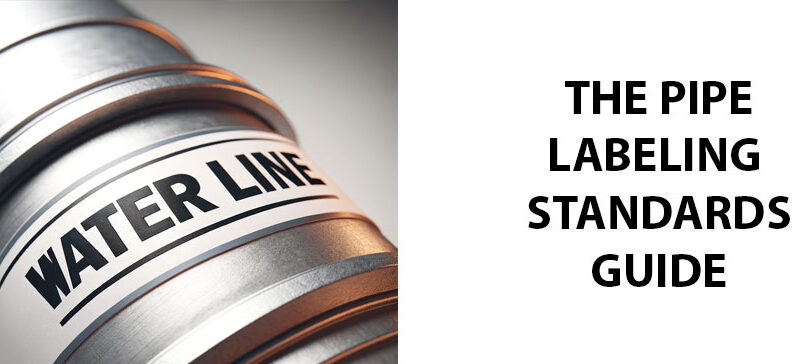Whether you’re in the electronics industry or an aerospace engineer, you could probably benefit from Kapton tape’s versatility in your work. But what exactly is Kapton tape?
Since its development in the 1960s, Kapton tape has been used across a variety of industries. Notably, Kapton tape was used in the Apollo 11 lunar missions, playing a major role in protecting the astronauts from the extreme temperatures of space.
In this post, we’ll explain exactly what it is, what it’s made of, as well as its many benefits and applications. Read on to learn everything you need to know about this extremely heat-resistant tape and how you might use it for your business.
What is Kapton Tape?
Kapton tape is a specialized adhesive tape known for its versatility and heat resistance. Developed in the 1960s by DuPont, Kapton tape has outstanding thermal and electrical insulation properties. It can withstand extreme temperatures, which makes it an invaluable tool in various industries.
What It’s Made of
Kapton tape is primarily composed of polyimide film, a synthetic polymer with high thermal stability and electrical insulation properties. Polyimide film is lightweight and flexible. There are other tapes on the market made from polyimide film, but Kapton tape is the most well-known.
The film is coated with a silicone adhesive that adheres to a variety of surfaces. The combination of these materials results in a tape that can withstand a wide range of temperatures, from as low as -425 degrees F to as high as 752 degrees F.
Best Uses
It’s extremely versatile and can be used in a number of ways. Although electronic insulation is one of the most common uses, there are a number of other ways Kapton tape can be used. Here are some of the best uses of Kapton tape:
- Electrical insulation: Because it provides exceptional electrical insulation, it’s used in many industries to insulate against electrical currents. For example, it’s used to insulate individual wires and cables to prevent short circuits. It has a high dielectric strength, which means it can withstand high voltages without breaking down. Additionally, It’s used to insulate components within electric motors, transformers, and other electrical devices.
- Splicing: Kapton is often used to splice or join wires and cables securely. It has a high tensile strength and adhesive properties that ensure a strong bond. Additionally, during printed circuit board manufacturing or repainting, Kapton tape is used to splice broken or damaged traces on the circuit board to restore the circuit’s functionality.
- Masking: Kapton tape is highly useful for masking specific areas during powder coating or painting processes. Its resistance to heat and chemicals ensures that it remains intact during the coating processes, keeping unwanted paint or powder off of the masked area. In processes like chemical etching, Kapton tape is used to protect designated areas from the etching solution.
- Packaging: Kapton tape is also for packaging, particularly in industries where temperature resistance and durability are essential. Kapton tape is extremely durable, making it a great choice for protecting sensitive components during transport. It can also be used to reinforce packaging materials or seal packages, adding an extra layer of security.
- High-temperature labels: Labels play an important role in a variety of industries, identifying crucial information that can keep employees safe. In settings with high temperatures, typical labels are prone to breaking down or falling off. Kapton tape labels can endure extremely high temperatures while staying legible, which makes them ideal for these high-temperature settings.
Benefits of Using Kapton Tape
There’s a reason Kapton tape has been popular for over 50 years. Kapton tape comes with a number of benefits that have enabled scientific and technological innovation both in space and for everyday life. Here are some of the main benefits of using Kapton tape:
- Heat resistance: One of the top benefits of Kapton tape is its heat resistance. It can withstand extreme temperatures without melting or degrading.
- Electrical insulation: Kapton tape insulates against electrical currents, preventing short circuits and ensuring the safety of electronic components.
- Chemical resistance: This tape is highly resistant to chemicals, making it suitable for applications in harsh environments where solvents and corrosive substances are regularly used.
- Versatility: Kapton tape comes in a variety of widths and thicknesses. Additionally, label manufacturers like Coast Label can cut Kapton tape into custom sizes to suit your needs.
- Flexibility: Polyimide film is extremely lightweight and flexible, which makes Kapton tape easy to apply to curved or irregular surfaces. This flexibility also ensures a tight seal when used to cover holes or openings.
- Peelability: When removed, Kapton tape peels off easily without leaving behind a residue.
What is Kapton Tape Used for?
Kapton tape is renowned for its versatility and finds applications in various industries due to its unique properties. Here are some of the key ways in which Kapton tape is used in different industries.
- Electronics: Kapton tape is a staple for those in the electronics industry. Because it can withstand such high temperatures as well as provide excellent electrical insulation, Kapton tape is widely used for protecting sensitive electronic components during soldering and other manufacturing processes. Kapton tape also prevents short-circuiting and electrical interference.
- Component mounting: Electronic components, such as surface-mounted devices (SMDs), are often attached to circuit boards using Kapton tape. The secure bond keeps components in place during assembly and usage.
- ESD protection: Kapton tape can also be used to protect against electrostatic discharge in electronic devices so that sensitive components are not damaged.
- Aerospace: When it comes to aerospace applications, extreme temperatures are the norm. Kapton tape’s heat resistance and insulation properties make it incredibly useful in these conditions. It securely bundles and insulates wires and cables while withstanding extreme temperature fluctuations encountered during flights. Additionally, it can be used to secure and insulate components in satellites and spacecraft, ensuring that they function as intended in the vacuum of space. Finally, Kapton tape’s adhesive properties make it ideal for sealing and patching in aerospace, from covering small breaches to temporary sealing openings.
- 3D printing: Kapton tape is a go-to solution for 3D printing. It acts as a build service adhesive, holding 3D-printed objects in place to ensure better print quality and preventing warping.
- Automotive: Because of its heat and chemical resistance, Kapton tape works especially well under the hood. The automotive industry uses Kapton tape for wire harnessing, insulation, and as a masking tape during paint processes.
- Laboratory labeling: In research and development settings, Kapton tape is used to label and mark equipment, samples, and containers. Its durability ensures that labels are legible in a variety of lab conditions.
Kapton Tape Label Uses
In addition to insulation, splicing, packaging, and masking, Kapton tape works well in labeling applications. Kapton tape’s unique combination of durability, heat resistance, and chemical resistance makes it a valuable material for labeling applications in a wide range of industries. Whether in electronics manufacturing, laboratories, industrial settings, or specialized environments, Kapton tape labels provide reliable and long-lasting identification solutions.
Here are some of the best uses of Kapton tape labels:
- Component identification: Electronics manufacturers often attach small Kapton tape labels to individual electronic components. These labels contain vital information like part numbers, serial numbers, and manufacturing dates. Kapton tape is preferred because it adheres well, resists heat, and doesn’t leave behind residue.
- Cable and wire identification: Kapton tape labels are used to identify cables and wires within complex electronic assemblies. Labels can include information about cable type, function, or destination, which helps technicians and engineers troubleshoot and maintain electronic systems efficiently.
- Traceability: In industries with stringent quality control and traceability requirements, Kapton tape labels can be imprinted with unique QR codes or barcodes. These codes link to databases containing detailed information about the components, enabling quick and accurate tracking of individual parts through the manufacturing process and beyond.
- Sample identification: In the laboratory, researchers often use Kapton tape labels to tag and identify samples stored in containers such as test tubes, petri dishes, and cryogenic vials. The tape’s resistance to extreme temperatures, chemicals, and moisture ensures that labels remain intact and legible.
- Equipment labeling: Kapton tape labels are also used to mark equipment and instruments in laboratories, factories, and automotive industries. This can include calibration dates, instrument names, or usage instructions. Because of its chemical resistance, Kapton tape can withstand regular cleaning and sterilization.
- Manufacturing: In industrial settings where machinery and equipment are exposed to high temperatures, chemicals, or abrasive conditions, Kapton tape labels remain intact and legible. This makes them ideal for labeling machinery, pipes, valves, and other critical components.
- Aerospace: Kapton tape labels are used on aircraft components and military equipment. They withstand the rigors of flight, exposure to harsh weather conditions, and routine maintenance procedures.
How Heat Resistant is it?
This is exceptionally heat resistant, with a continuous operating temperature range of -425 degrees F to 752 degrees F. While other heat-resistant materials might only endure high heat for a short amount of time, Kapton tape can handle the heat continuously. This remarkable tolerance to extreme temperatures means that it performs reliably in the harshest environments, from the depths of space to the extreme heat of industrial processes.
This is a true marvel of engineering, offering unparalleled heat resistance, electrical insulation, and chemical resistance. Its versatility and reliability have made it a go-to choice for a wide range of applications, from electronics manufacturing to aerospace engineering. The next time you need a tape that can handle extreme conditions, Kapton tape just might be the adhesive you need for the job.
At Coast Label, we offer Kapton tape for a wide variety of applications. With our state-of-the-art equipment, we can manufacture custom Kapton tape labels in a variety of shapes and sizes. Whether you need wire labels that can withstand heat or chemical-resistant labels for automotive parts, we can customize Kapton tape labels to meet your exact needs.


